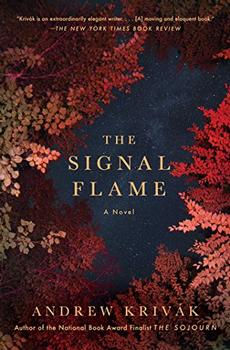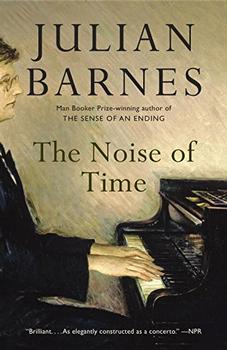Summary | Excerpt | Reading Guide | Reviews | Beyond the book | Read-Alikes | Genres & Themes | Author Bio

These days Tallinn, the capital city of Estonia, is one of the top "digital cities" in the world, championed for its information technology economy. But during the chaotic melee that was World War II, not many could have predicted the city's rise onto the world stage. After all, Estonia had the misfortune of having two superpowers battle it out in its backyard (See Beyond the Book). Sofi Oksanen's compulsively engaging novel is set during this period of great political upheaval.
As the novel opens, cousins Edgar and Roland are back on their rural family farm from Finland, where they have trained to root the Red Army out of their native Estonia. As if the displacement caused by Estonia constantly seesawing between German and Russian occupation weren't enough, Edgar and Roland have to also deal with personal struggles — trying to make their way in a volatile political environment. First, Roland's wife, Rosalind, dies a mysterious death when he is away and he resolves to seek revenge and becomes a freedom fighter on the run. Edgar, on the other hand, realizes he can't stomach war and would rather rely on wily subterfuge to make his way in the world. Trapped in a marriage that he refuses to consummate, Edgar also uses the excuse of wider political unrest to stay away from his wife Juudit who is trying to make her way in Tallinn.
When the Doves Disappeared tracks these major characters' machinations back and forth across two time periods: one in 1941 when Tallinn was first part of the Estonian Soviet Socialist Republic and then switched to German rule with the name "Reval," (which had been the German name for the city up until Estonia gained independence after World War I), and a second is set in the early '60s when Estonia is again under Soviet occupation. While these abrupt changes in perspective do get disorienting, they keep the reader engaged because wily Edgar changes along with the times. When the country is under German occupation, he is Eggert Fürst, eager to collaborate with the Germans even when the whiff of their more sinister designs come through. When Estonia is taken by the Soviets, he becomes Edgar Parts, only too willing to name names and root out former "Hitlerists," somehow making sure that his cover is never blown even by his pesky family.
It is usually difficult to love a novel with unlikeable protagonists and, arguably, Edgar Parts is one of the most slimy ones in recent memory. It is to Oksanen's immense credit that the reader is riveted to his every devious move, a bystander to his desperate craving for status. Forever on the outside, looking in on the plays executed by those more powerful than him, Parts' salivating hunger for the glory that is just beyond reach is so beautifully executed that one can almost empathize with him. Almost. Once, when he enters a high-ranking official's office, he imagines "what it would be like if someday he had an office like this one, his own department, here where the corridors felt like corridors of power, and the wind from the cellar blew on someone else's ankles, not his." Parts' ruthless ambition is so all-consuming and craven that one can't look away. Meanwhile, Roland and Juudit have their own lives shape up in interesting ways and it remains to be seen just how the three will learn to negotiate their new future selves.
While the novel's primary trope — of ordinary people being galvanized by war to different actions and outcomes — is nothing new, Oksanen lends the story (translated seamlessly by Lola Rogers) a more raw and visceral touch. The players' emotions are laid bare not crudely or in an overly simplistic fashion, but in ways that hit the reader with a sense of urgency that makes you take notice. You feel for Juudit when she fears liberation because it might mean the return of her husband. Because of her loveless marriage, "The ordinary life she would get wasn't the ordinary life she wanted," Oksanen writes.
Love, marriage, loyalty, friendship — these are themes that hold universal cachet. Where Doves really succeeds is in showing just how war can shear these everyday human values so off course that they no longer remain the foundations on which to make a life.
![]() This review was originally published in The BookBrowse Review in April 2015, and has been updated for the
February 2016 edition.
Click here to go to this issue.
This review was originally published in The BookBrowse Review in April 2015, and has been updated for the
February 2016 edition.
Click here to go to this issue.

If you liked When the Doves Disappeared, try these:

by Andrew Krivak
Published 2017
The stunning second novel from National Book Award finalist Andrew Krivak - a heartbreaking, captivating story about a family awaiting the return of their youngest son from the Vietnam War.

by Julian Barnes
Published 2017
A compact masterpiece dedicated to the Russian composer Dmitri Shostakovich: Julian Barnes's first novel since his best-selling, Man Booker Prize–winning The Sense of an Ending
Your guide toexceptional books
BookBrowse seeks out and recommends the best in contemporary fiction and nonfiction—books that not only engage and entertain but also deepen our understanding of ourselves and the world around us.